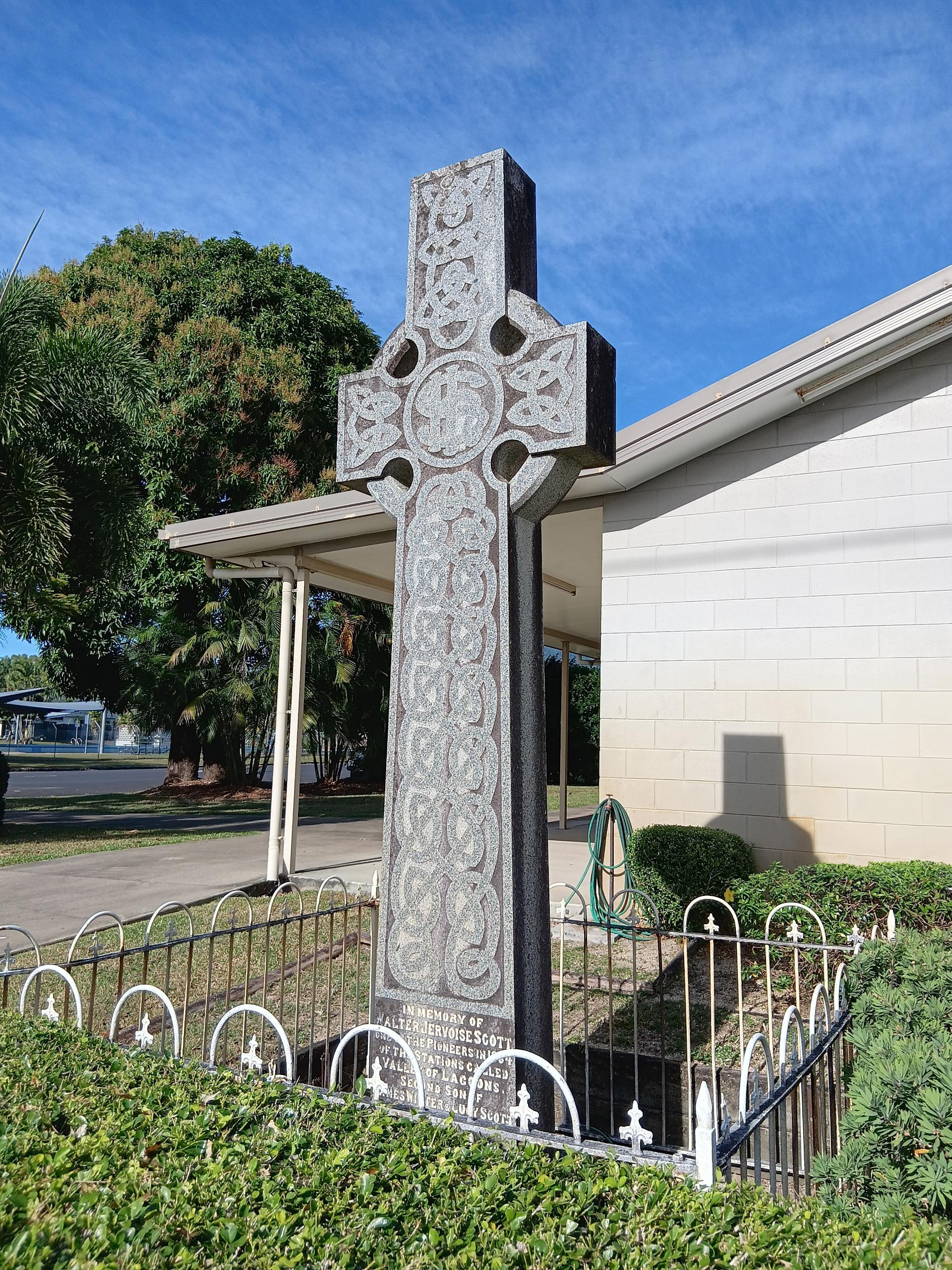


On 24th March 1890, a cyclone struck Cardwell, destroying the jetty and schoolhouse while badly damaging the Courthouse. In 1892, a building costing £228 was constructed to house the Cardwell Divisional Board offices. When Walter Scott died at the Valley of Lagoons in 1890, a memorial Celtic Cross was sent from England, which was erected in Cardwell as it proved too heavy to carry up the mountain; the cross now stands in the grounds of the Anglican Church. On Hinchinbrook Island, the Diehm brothers carried out the grinding and processing of shells to produce lime.
In 1894, Hubinger’s Hut was built at the Five Mile Meatworks to serve as a tongue house, and the meatworks supplied tinned beef to soldiers during the Boer War. From 1902, Hubinger’s Hut served as a room for the sons of John Christian Hubinger (senior). In 1920, it was relocated to Sunbeam Creek, its current location approximately 5 km north of Cardwell. In 1895, a twice-monthly mail service was established by coastal steamers. In the same year, John Murray secured a two-year mail contract to carry mail weekly by packhorse from Cardwell to remote locations for a fee of £80 per annum.
In 1900, in an unusual experiment to provide food for shipwreck survivors, two red deer stags and two hinds were shipped to the Haven on Hinchinbrook Island. In the early 1900s, William Watkins cultivated citrus trees and ran cattle south of Hecate Point on Hinchinbrook Island. By 1902, the Cardwell Divisional Board evolved into the Cardwell Shire Council with Johann Hubinger becoming its first Chairman. In 1911, the Cardwell Shire Council area, covering 2,901 square kilometres, had 440 residents, and by 1921 this number was recorded as 370.
